Editorial
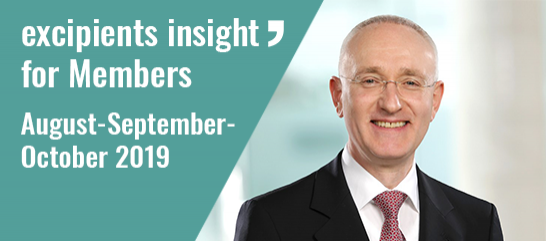
Dear IPEC Europe members,
Welcome to our autumn edition of Excipients Insight … who can believe it’s October already!
Where did the summer, and the rest of the year for that matter, disappear to!
In this editorial, I’d like to jump straight into the various task forces that are already active or are in the process of being assembled. We’re ready to launch our Lactose Interest Group as well as task forces considering Multicompendial Compliance Strategy for Excipients and The Potential Impact on Excipients of Nitrosamines in Medicinal Products and Active Pharmaceutical Ingredients (APIs). Particularly for the latter, as our recent bulletin explains, we need an efficient way for excipient suppliers to be able to manage requests from drug product manufacturers for relevant ‘risk’ information following on from the European Medicines Agency (EMA) request for action on the part of Marketing Authorisation Holders (MHAs). We hope that our own activity on this topic will have an additional benefit which contributes to our goal of collaborating with other industry associations with an interest in excipients …the ‘more the merrier’ and cooperating on such topics should increase our chances of success.
Increasingly, as we plan how to execute our mission, I believe we’re seeing that creating smaller, task-oriented focus group built around our existing committee structure is a fast and effective way of delivering a positon or a process. This helps us respond better to the increasingly dynamic world of regulation, for example, like the recent ECHA microplastics restriction proposals. Maybe this is the way forward? Bringing together ad-hoc volunteers on a topic-by-topic basis while maintaining smaller core groups for committees. What do you think? Please let us know! And should any of you, or a colleague, like to join in any of these initiatives, it’s never too late, so please get in touch with our Secretariat at info@ipec-europe.org.
Our outreach objectives are progressing well as the year marches on. Feedback from the IPEC Europe / APV event in Vienna was very pleasing and our attendance at a new event, Making Pharmaceuticals in Milan, saw a good flow of visitors coming to our stand. As you may recall, as Italy and France are big producers and consumers of medicinal products we would like to increase our members located in these important markets. Moving on to France, in November, we’ll be hosting our first webinar in French hoping to attract interest in IPEC and what we do by presenting on Excipient GMP. This will be accompanied by the launch of the IPEC-PQG GMP 2017 Guide in the French language too, à nos lecteurs francophones inscrivez-vous et encouragez vos collègues à le faire aussi!
Another first for 2019 and we’re hoping it will be a great success and pave the way for many other such new ideas!
We do have one Board meeting before the end of the year and now wereally are at the end of our Agenda 2020 so please keep your eyes open for news on what your Board will be developing in Stuttgart next month looking out to 2025! And also, if you happen to be at CPhi in Frankfurt from 5-7 November, please let us know: it is always nice to see you!
Until the next time,
Frithjof Holtz
A new home for IPEC Europe: meet us at Marie de Bourgogne 52
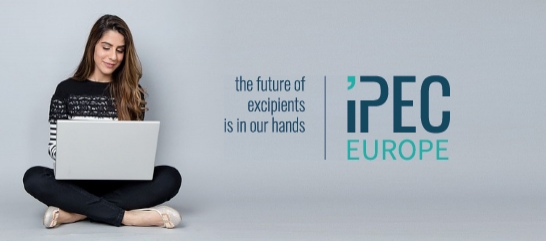
IPEC Europe is delighted to announce that its Secretariat moved to a new address – Rue Marie de Bourgogne 52, third floor – 1000 Brussels - on Monday 21 October.
Strategically placed in the European Quartier, the new office represents the growth of the association and allows to welcome members and stakeholders in a modern environment.
“After the creation of the permanent office in 2014, we are very excited to be embarking on a new phase of the association in our new premises, strategically placed in the European Quartier” says Frithjof Holtz, IPEC Europe Chair. “The new location is an excellent opportunity to continue and strenghten dialogue and engagement with our members and our stakeholders” he adds.
IPEC Federation and EXCiPACT followed IPEC Europe in the move.
The IPEC Europe phone number will not change: reach us as 0032 2 213 74 40.
We look forward to welcome you in Rue Marie de Bourgogne 52/3!
Meet IPEC Europe at CPhI Worldwide!
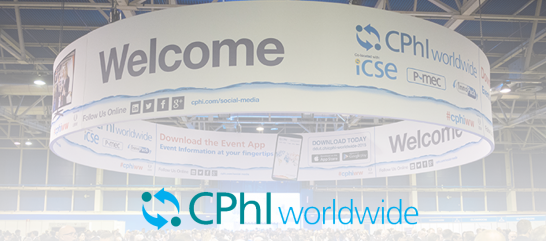
IPEC Europe will be attending this year’s CPhI Worldwide exhibition in Frankfurt, Germany from 5 to 7 November. Meetings are being arranged with European pharma excipient producers and global pharma companies to discuss the benefits of IPEC Europe membership.
Several IPEC Europe Board members, including Chair F. Holtz, Vice Chair F. Milek, M. Yunis, and A. Faham will also represent the association during the three-days fair.
Frithjof Holtz will also present the key position paper “The case for a Master File System for Novel Excipients in Europe” on Thursday 6 November – an opportunity for the whole industry to learn more about this initiative.
The Risk of the Presence of Nitrosamine Impurities in Human Medicinal Products
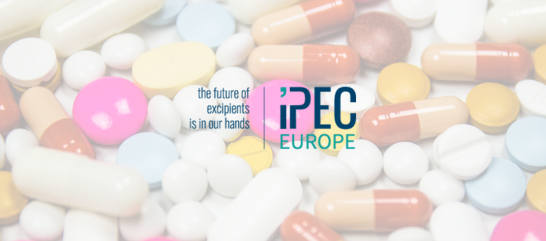
As you may be aware, regulatory authorities have been considering appropriate actions in response to the awareness of the presence of a nitrosamine, N-nitrosodimethylamine (NDMA), in valsartan from one manufacturer of active pharmaceutical ingredients (APIs). Subsequently another nitrosamine, N-nitrosodiethylamine (NDEA), was detected and other sartans from more API manufacturers were later implicated. NDMA and NDEA are classified as probable human carcinogens and their presence in sartans was, at the time, unexpected. More recently nitrosamine impurities have been identified in other APIs and consequently broader reviews have been initiated, some of the requirements for which are described in communications from EMA and Health Canada which are provided for your information.
Marketing Authorisation Holders (MAHs) in the EU have been asked to take specific actions for products containing sartans with a tetrazole ring. However, another source of nitrosamines may be contaminated starting materials, including intermediates supplied by vendors that use processing methods or raw materials causing the formation of nitrosamines. For example, nitrites are known impurities in raw materials, including reagents, solvents, and excipients used in finished products. Thus, as MAHs and finished product manufacturers perform risk evaluations, excipients included in the medicinal product formulation may also be built-in to the assessments.
At this stage IPEC Europe would like to ensure its members, specifically excipient suppliers, are aware of this situation and the potential for action. Suppliers may wish to consider if any materials they supply to finished product manufacturers could be included in the scope of such risk assessments. However, IPEC Europe is intending to collaborate with other industry associations to develop a unified process to gather information on the risks which excipients could contribute to any nitrosamine contamination during drug product manufacture. MAHs have been given a timeline of six (6) months as of 19 September 2019 to complete this exercise and so IPEC Europe will work diligently to provide any advice on how the exercise could be conducted for excipients if required and also clarify expectations of excipients with EMA.
Webinaire: Eléments Essentiels des Bonnes Pratiques de Fabrication des excipients pharmaceutiques
IPEC Europe a le plaisir d'annoncer son premier webinaire en langue française pour le lancement de la traduction du guide IPEC-PQG Good Manufacturing Practices.
Présenté par Patricia Rafidison, ancienne Présidente de l'IPEC Europe et ancienne Présidente de la Fédération IPEC, le webinaire a pour objectif de promouvoir l’association et donner aux participants des éclaircissements sur l'importance des bonnes pratiques définies dans le guide selon les réglementations européennes et nationales actuelles.
Les excipients sont des substances autres que le principe actif, et incorporées dans un système de délivrance pharmaceutique (comprimés, sirop, patch, crèmes…). Leur fonction est essentielle dans le médicament. Ils sont utilisés comme conservateurs, colorants, aide à la fabrication, diluant d’un sirop, mais aussi pour améliorer la stabilité ou la tolérance d’un médicament.
Lors de cette présentation, les éléments essentiels des BPF, adaptés à l’environnement industriel des fournisseurs d’excipients, seront présentés en utilisant le Guide BPF des Excipients 2017, publié en français. Les points essentiels à considérer lors de la mise en place de ces BPF seront discutés.
Pour plus d'informations, veuillez vous renseigner sur notre site web : www.ipec-europe.org
A new European Commissioner for Health: Stella Kyriakides
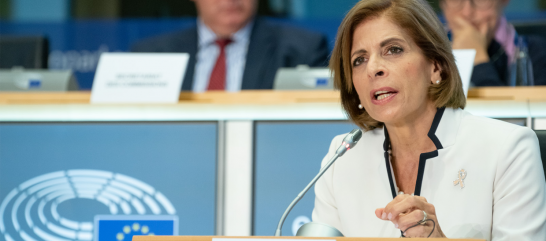
Stella Kyriakides, a Cypriot member of the European Parliament and a medical psychologist, is set to take charge of the Health portfolio in the new European Commission led by Ursula von der Leyen. A professional patient advocate, she is a past president of Europa Donna, a prominent breast cancer patient group, and President of the Parliamentary Assembly of the Council of Europe (PACE) since late 2017.
The mandate letter by Commission President-Elect von der Leyen included a set of key priorities such as assuring the “supply of affordable medicines” and improving communications on vaccines. Ms Kyriakides will have increased responsibilities under her charge as she will oversee the regulation of medical devices and pharmaceuticals, with a reshuffle of units from DG GROW to DG SANTE. Her biggest focus will be to ensure a steady supply of medicines and maintain the status of the European pharmaceutical industry as a world leader in innovation.
During a joint public meeting of the Committee on the Environment, Public Health and Food Safety (ENVI) and the Committee on Agriculture and Rural Development (AGRI), MEPs held a hearing of the Commissioner-designate for Health on 1 October to evaluate and approve her appointment. Members of the European Parliament questioned her on a wide range of issues, including AMR, endocrine disruptors, pollinators, pesticides, organ donation, digital innovation, and health inequalities.
In her presentation, Ms Kyriakides told MEPs that health issues were of the utmost importance for European citizens, and mentioned that a new pharmaceutical system was needed to ensure high quality and accessible medicines. She also pointed out that it would be essential to establish partnerships with stakeholders, Commissioners, the Parliament, and industry; building relationships based on trust, transparency and accountability to deliver the Commission’s ambitious plans to improve access to healthcare and medicines and encourage healthier lifestyles.
Amongst many questions, J. Kopcinska asked how the Commissioner candidate intended to rebuild the pharmaceutical industry; Ms Kyriakides said that a holistic strategy along with new business models are needed. Questioned by E. Kopacz, Ms Kyriakides told MEPs that a task force addressing drug shortages is active and causes are being identified.
Hermann Tertsch raised concerns that disinformation was eclipsing science in the healthcare debate, while MEP Ferreira criticised the apparent links between the Commission and the industry. Ms Kyriakides recognised the importance of fighting fake news and improving education, committing to innovation and empowering research across Europe; she replied that all European Union agencies and institutions are closely monitored against strict rules pertaining to independence.
In her closing statement, Ms Kyriakides insisted that the health portfolio touched on the everyday lives of citizens, their health, livelihoods and food, and concerns on endocrine disruptors and availability of medicines will be taken into consideration in her mandate.
MEPs evaluated positively Ms Kyriakides and endorsed her as the new European Commissioner for Health. The European Parliament is set to vote on the full College of Commissioners during the Plenary session of 25-28 November in Strasbourg pending formal endorsement of each Commissioner by European Parliament committees.
Picture: European Parliament / European Union
Webinar: Excipient Requirements in Latin America
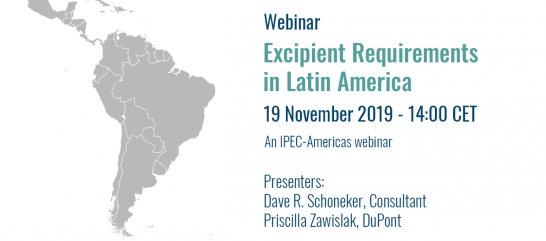
IPEC Europe is pleased to share with its members news of an IPEC-Americas webinar that will take place on 19 November 2019, 14:00-16:00 Brussels time.
This webinar provides a review of the regulations and guidelines which apply to pharmaceutical excipient use in primary Latin American countries (e.g. Brazil, Argentina, MERCOSUR, Andes, Mexico).
IPEC-Americas has been working with its partners in Latin America to have IPEC guidelines translated into local languages and has presented educational workshops for several years in this region to regulators and industry associations. Some countries have established regulations for excipients, e.g. ANVISA in Brazil has regulation for excipient GMPs, while other countries’ regulations do not specifically address excipients.
The objectives of this IPEC-Americas webinar are:
- Understand regulatory requirements for excipients in various countries in Latin America
- Gain a perspective on how other regions operate
- Learn about IPEC-Americas efforts to engage and educate on best practices
Presenters are Dave Schoneker, Consultant, and Priscilla Zawislak, Global Regulatory Affairs Advocacy Manager, DuPont Nutrition and Biosciences and President of the IPEC Federation.
Registration for IPEC Europe Members is available at a reduced fee ($89). Please use the code “Members” Registration code to benefit from the reduced fee.
For further information and assistance, please contact the IPEC-Americas Secretariat.
Looking ahead to the 2020 Annual Excipients Forum
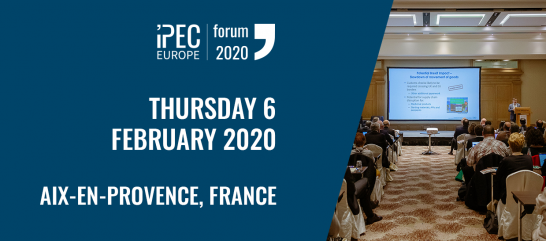
On Thursday 6 February, IPEC Europe will host its Annual Excipients Forum, a key date in the calendar for all involved in the supply, distribution and use of pharmaceutical excipients. The 2020 event will be in Aix-en-Provence, France.
We are delighted to announce that the programme includes two sessions on the latest developoments in China, where Ms Yuwei Heinzel from Merck will provide an overview of the Chinese Regulations and Status, while Cécile Subra from Gattefossé will report on the experience of her company dealing with the Chinese Bundling Review.
This is just the latest addition to what is a very comprehensive programme for the Annual Forum that is picking up on some of the most pressing issues of the moment.
After the opening comments from IPEC Europe Chair Frithjof Holtz, the morning will feature a presentation from EDQM Director Dr Susanne Keitel on the developments in the European Pharmacopoeia (Ph. Eur.) relevant to excipients. Dr Lynne Byers from NSF Pharma Biotech will update all participants on Brexit and its latest developments. TYhbnis will be fascinating as our forum is only days after the recentyl extended exit date!
A panel session on Excipients for Parenterals will kick off the proceedings after lunch, with representatives across the excipients value chain that will bring their views on this key topic. Confirmed speakers include Dr Andrea Hawe, Coriolis Pharma, Ms Elham Blouet of Roquette Fréres and IPEC Europe Vice Chair Dr Frank Milek, Hedinger.
That will be followed by presentations from Ron Torano of GSK on the different pharmacopoeias around the world and Giustino di Pretoro of Janssen Pharmaceutica on the impact of continuous manufacturing in the production of excipients.
After an intense day of conference, there will be time to relax, too! The Cocktail Reception and Forum Dinner will take place in Le Moulin de la Récense, a 19th-century olive oil mill surrounded by picturesque Provence fields. During the evening we will celebrate 10 years of the IPEC Federation with President Priscilla Zawislak and IPEC Europe Chair Frithjof Holtz.
We look forward to welcoming you in Aix – if you didn’t register for the Annual Forum yet, Register now!
IPEC Europe Excipient Conference 2019 - Vienna, Austria
The IPEC Europe Excipient Conference 2019 took place on 24 and 25 September in Vienna. Organised in cooperation with APV, the 8th edition of this well-established event offered insights into important areas in the areas of pharmaceutical excipient regulation and technology.
As in previous editions, three parallel workshops provided participants with opportunities to learn how to achieve compliance for excipients through IPEC guidelines such as the Good Distribution Practices (GDP) guide, the Co-processed excipient guide and the Technically Unavoidable Particle profile (TUPP) guide.
Workshops were well attended and received a high level of engagement from participants.
The main conference kicked off with a presentation on the IPEC-PQG Good Manufacturing Practices (GMP) Guide by Astrid Stockrahm-Uhling of DFE Pharma who stressed the importance of determining the highest risk for the manufacture of an excipient as the starting point of applicability of this guide.
Dr. Philipp Hoch of Hedinger followed with a presentation on “The IPEC Significant Change Guide for Pharmaceutical Excipients”. Starting from the concept of significant change, Dr. Hoch gave attendees a clear explanation of its rationale and guiding principles, describing the features of the guide and its possible integration into the QMS (Quality Management System) and Quality Agreements, concluding with some practical examples.
Dr. Norbert Waldoefner from Blue Inspection Body provided the audience with a broad overview of different Good Manufacturing Practices standards and guidelines for medicinal products and constituents applicable in the European Union.
He identified several common features of GMP standards including general elements and requirements related to production and quality control. Dr. Waldoefner then provided a comparison of requirements from different sources, including quality risk management (risk assessment etc.), stability, data integrity, packaging and labelling, and process validation.
Dr. Frank Milek picked up the baton to present some examples of GMP implementation from the perspective of a supplier of excipients and APIs. In his experience, a similar approach to implement GMP into the QMS for excipients can be taken as for APIs. However, a different implementation process is necessary for elements such as stability testing, process validation, equipment qualification, regulatory inspections and customer audits.
The second day of proceedings opened with a session on pharmacopoeias. Anne Garnier-Poidevin of EDQM illustrated the organization’s role and activities in the regulatory environment and its efforts towards harmonisation of monographs and general chapters.
After a quick re-cap on how the Ph.Eur. is structured, Ms Garnier-Poidevin described the requirements to attain compliance with the Ph. Eur. , and clarified that demonstrating that the suitability of a method is compliant with the European Pharmacopeia does not necessarily mean testing. Alternative methods such as Quality by Design and Process Analytical Technology (PAT) may be used and are subject to the approval of the competent authority.
She closed her presentation by highlighting two new monographs and several revised monographs will be implemented in the Ph.Eur. from 1 January 2020. Other texts are under revision for international harmonisation such as propylene glycol (0430) and carmelose sodium (0472).
Dr. Galina Holloway of the U.S. Pharmacopoeia (USP) presented the views of the organisation on the use of alternative and harmonized methods and procedures. USP General Notice Alternative procedures are acceptable and must be “fully validated according to the General Chapter <1225> and must be shown to give equivalent or better results.”
After a break and tabletop visits, the conference continued with Dr. Amina Faham from DuPont who presented an overview of the pharmaceutical excipients market. The outlook is relatively positive for the global pharma industry, increasingly focused on R&D.
Dr. Faham mentioned in her analysis compelling trends from inside and outside the industry such as mergers and acquisitions and an aging population in developed countries. In a rapidly evolving landscape, drug complexity will result in more formulation challenges, and generics are gaining share in the market.
Excipients will follow an upward trend, too, as these continue to add value to pharmaceuticals and evolve closely as novel technologies are adopted in the development of new drugs. Growth patterns will not be uniform and will vary between different categories of excipients.
The session on the role of excipients started with Prof. Dr. Joerg Breitkreutz from the University of Duesseldorf, Germany who presented to delegates on the importance of excipients in the formulation of paediatric medicines. The choice of suitable excipients is a key element and requires special considerations such as target age group, palatability, and potential alternatives.
Two useful instruments he mentioned are the EuPFI Safety and Toxicity of Excipients for Paediatrics (STEP) database and the FDA Inactive Ingredients database, although further evidence-based regulatory guidance is needed. Dr. Breitkreutz presented and discussed a case study on the introduction of a novel excipient in a special formulation for children (LENA project).
After a break for lunch, Prof. Dr. Gabriele Sadowski, TU Dortmund University, opened the session on amorphous solid dispersions and discussed the importance of excipients selection. Crystalline APIs often have low solubility in water. One solution is to dissolve APIs in polymers to stabilize the amorphous state as amorphous solid dispersions (ASD). Two additional challenges arise: the recrystallisation of the API and hydrate formation. Thermodynamic understanding can allow the identification of promising excipients and controlling critical quality attributes (CQA). Also, this can considerably speed up formulation development.
Dr. Jessica Mueller-Albers of Evonik illustrated to the audience the implications of the formulation and manufacturing of amorphous solid dispersions. A key technology to improve solubility, several techniques are used for the preparation of ASDs. Functionality of excipients and CQAs need to be evaluated in the context of formulation and manufacturing process.
Big in Japan! – IPEC Federation update
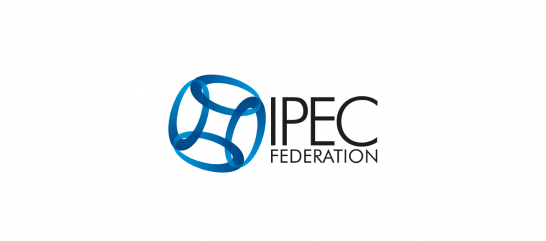
Every year, the IPEC Federation (IPEC) meets with the Pharmacopoeial Discussion Group (PDG) to discuss common areas of interest related to the harmonisation of excipient monographs. This year’s event took place in Tokyo on 02 October following the PDG’s own meeting, and was attended by IPEC representatives from the Americas, Europe and of course, Japan.
The agenda included follow up on some on-going issues related to specific materials and particularly, silicon dioxide. In order to establish an identification method to distinguish between colloidal and precipitated grades, IPEC agreed to reach out to suppliers to obtain batch analysis data for certain parameters to help further this effort. Also, IPEC will consult with its members to determine any priority excipients and general methods which could be included in the PDG’s work programme so look out for further communications to get your input on this.
One of the IPEC Federation’s goals is to raise awareness of its activities and support directly events within regional IPEC’s. Taking advantage of visiting IPEC representatives, IPEC Japan organised a workshop on the same day, which as well as sharing information on the IPEC Federation itself and its objectives, addressed the very current topics of Quality Agreements, Risk Assessment for Excipients and Pharmacopoeial Harmonisation. The workshop as well attended and received with several questions on the practical implications, for example on the value of the manufacturer’s quality statement in the context of quality agreements. Janeen Skutnik-Wilkinson (IPEC-Americas), Priscila Zawislak (IPEC-Americas) and Adrian Bone (IPEC Europe) were the presenters.
And finally, back to PDG! On 03 October, Japan’s Ministry of Health, Labour and Welfare (MHLW) and Pharmaceuticals and Medical Devices Agency (PMDA) hosted an international symposium, entitled “The PDG 30th Anniversary Symposium -The History and Future Perspective of PDG”. As PDG is celebrating its 30th anniversary this year, the PDG 30th Anniversary Symposium was held as a milestone reflecting on PDG's 30 years of activities, with lectures from experts on the latest situation and the role PDG has played in Europe, Japan, the United States, and other countries/regions.
Representatives of PDG members spoke on the latest topics of each pharmacopoeia and PDG observers, the World Health Organization (WHO), discussed the relationship between the International Meeting of World Pharmacopoeia (IMWP) and PDG. Also, among the pharmacopoeia users, experts from pharmaceutical industry groups talked about their expectations for PDG. As part of this, the IPEC Federation was privileged to be invited to speak at this event where Priscilla Zawislak as the current president of the IPEC Federation presented on the Federation’s future vision for how harmonisation could be transformed. It was very evident from all parties that advancing harmonisation could be achieved through a wider global platform, such as via the IMWP. Broader collaboration could facilitate pharmacopoeial convergence rather than divergence, with benefit, not least to patients themselves, in delivering a reliable supply of high quality medicines.
Thanks to IPEC Japan for coordinating all IPEC-related activities and their warm hospitality.
Further information is available from info@ipec-federation.org
ICH reinstated the PDE for Ethyleneglycol to 620 ppm in the Q3C(R6) Guideline!
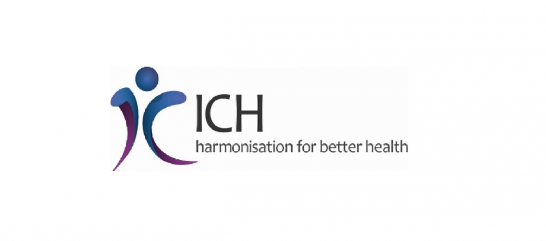
Further to the ICH Assembly's decision taken at the April meeting in Amsterdam, the ICH informed that the PDE for ethyleneglycol was reverted from 3.1 mg/day (310 ppm) to 6.2 mg/day (620 ppm) in October 2019, effectively reversing the error correction which previously communicated.
Thank you to the IPEC Europe Quality and Regulatory Affairs Committee and especially to our member BASF for noticing this error and for helping to get it corrected!
Please be informed that the Q3C(R6) Guideline is now available under the Quality Guidelines page:
Q3C(R6) Guideline
Q3C(R6) Cover Statement
Pharmacopoeial Discussion Group - PDG
The latest face-to-face meeting of the Pharmacopoeial Discussion Group (PDG) [European Pharmacopoeia (Ph. Eur.), Japanese Pharmacopoeia (JP) and the United States Pharmacopeia (USP)] was hosted by JP in Tokyo, Japan on 1-2 October 2019. WHO participated as observer. The PDG 30th Anniversary Symposium was also held on 3 October 2019.
Individual work programme sign-offs at this meeting included revisions to monographs on E-55 Gelatin and E-60 Sodium Lauryl Sulfate. The PDG monograph on Gelatin now covers all grades, while the monograph on Sodium Lauryl Sulfate has been revised to include a new Identification by infrared spectrophotometry and a revised Assay method. It was also reported that the revision to Q-07 Colour was signed off by correspondence in June 2019.
Thus 28 of the 31 General Chapters and 46 of the 60 excipient monographs on the current work programme have now been harmonised among the PDG Pharmacopoeias. In-depth discussions on other items on the current PDG work programme also took place with a view to resolving outstanding issues and advancing the items towards sign-off. In addition, the Coordinating Pharmacopoeia reported back on the success of the technical teleconference in July 2019 on the revision of Q-09 Particulate Contamination.
More detail here.
New team member joins the Secretariat: Donika A.
IPEC Europe is glad to welcome a new member of the staff, Donika Aliaj who joined the team as Office Manager on 1 October.
Her previous experiences include working for the American Chamber of Commerce to the European Union (AmCham EU) and the European Commission. She speaks five languages: English, French, Albanian, Italian and Spanish.
Donika will be tasked with the day-to-day smooth functioning of the IPEC Europe Office. We are very happy to welcome her to the team.
IPEC Federation: new infographic
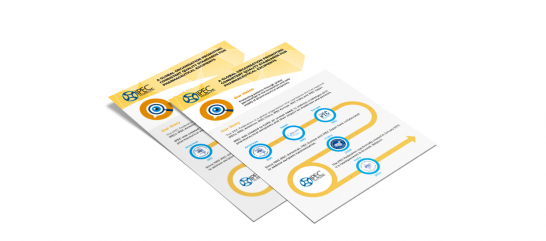
Do you know what the IPEC Federation is and what it does for you?
IPEC Europe and its sister associations developed a new communication tool together to address the members of each IPEC and inform them about the added-value of the IPEC Federation, now reaching its 10th year of activity.
We are glad to present the first IPEC Federation infographic here to help every IPEC Europe member and key stakeholders understand in a clear and simple mannerthe key role of the IPEC Federation in advancing the role of excipients globally.
Learn more about the vision, the story and the main goals of the Federation by downloading the infographic from the IPEC Europe and IPEC Federation website.
External events: Making Pharmaceuticals Italy and EuPFI
Making Pharmaceuticals Italia
IPEC Europe attended the Making Pharmaceuticals event in Milan, Italy on 16-17 September and took a leading role in the conference sessions focused on excipients.
The Making Pharmaceuticals event, hosted for the first time in Italy, is a free-to-attend event AND was a great showcase as it attracted a good flow of visitors over the two days, helping IPEC Europe to spread the word on its activities to an Italian-speaking audience of professionals involved in pharma manufacturing.
Roberto Mastrantonio from Eli Lilly illustrated the importance of the IPEC Quality Agreement guide to help reduce the time needed to draw up agreements between excipient suppliers, distributors and customers. The latest version of the guide (2017) covers these agreements and includes templates accompanied by ‘how to’ notes.
Then Alberto Genovesi, Colorcon, presented the current situation on the titanium dioxide from a regulatory perspective. He clarified that EFSA stated multiple times that E171 is a safe food colour and no other EU member states has so far supported France’s position regarding the E171 suspension in foods.
The seminar sessions were well attended, and there was good interaction from the audience, some of whom stayed on afterwards to continue discussions. Many visit the exhibition booth later in the dayWhere our Junior Communication Manager S. Luppino introduced the association and its activities, andto those wishing to know more about IPEC Europe guidelines and the role of the association for the whole excipients industry.
EuPFI Conference
The European Paediatric Formulation Initiative (EuPFI) held a conference on Formulating better medicines for children on 10-12 September 2019 in Malmö, Sweden.
The goal of this event was to shed light on key issues when developing medicines for children that meet the needs of the patient, prescriber and regulator and to highlight the place of paediatric issues in drug development.
The conference was divided into four work streams: paediatric oral formulations, neonatal drug development, challenges and opportunities for paediatric formulations in China, intranasal benzodiazepines for epileptic seizure.
In the focus session on excipients, chaired by Smita Salunke, University College London, IPEC Europe Board member Kevin Hughes presented an update on the evolving situation of the titanium dioxide in Europe. He reminded all participants that colour selection and quality in pharmaceutical products is controlled in Europe by food regulations, and he described the regulatory actions taken by European Union and French authorities. Hughes added that IPEC Europe took action with other associations to support the safety of E171 in pharmaceutical products.
Calendar
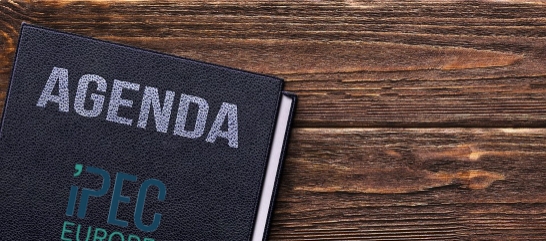
| Group |
Q4 2019 |
| IPEC Europe Board |
28 November, Stuttgart, Germany |
| Good Distribution Practices Committee |
26-27 November, Stuttgart, Germany |
| Quality & Regulatory Affairs Committee |
29 October, Brussels, Belgium |
| Multicompendial Compliance TF |
19 November, TC |
| Lactose Monograph TF |
14 November, TC |
Brexit updates
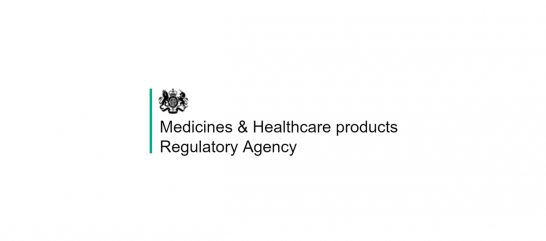
At the time of writing, high-level discussions are ongoing between the British government, EU authorities and national governments to avoid an uncontrolled exit of the United Kingdom from the European Union on January 31, 2020.
Nonetheless, the scenario of a “hard Brexit” is still a possibility. The Medicines and Healthcare products Regulatory Agency (MHRA) is publishing a series of guidance documents covering the proposed arrangements for the regulation of medicines, medical devices and clinical trial in case a no-deal Brexit happens.
A collection of guidance documents has been updated in early October and we invite all members to review the latest information provided by the British agency. A comprehensive overview of all documents can be find here.
Recommended readings

Chinese NPMA publishes new English website
The National Medical Products Administration (NMPA) of the People's Republic of China launched its official English-language website in July.
NMPA website
A new interim Head for MHRA
Dr June Raine has been appointed interim Chief Executive of the Medicines and Healthcare products Regulatory Agency (MHRA) from 20 September 2019. Dr Raine replaces Dr Ian Hudson, who stepped down after 6 years as Chief Executive Officer of the agency and released an insightful interview on inspections, GMP compliance and Brexit back in July.
MHRA - GOV.UK
Brazil approves new GMP regulatory framework
ANVISA approved the new regulatory framework for good manufacturing practice (GMP) of medicines in Brazil. The Good Manufacturing Practice Regulation is the main regulatory standard to ensure the quality of medicines in this country. With the updated GMP regulatory framework and the matching of PIC/S requirements, it is believed that Brazil will become a more attractive and competitive market, even in different markets.
ANVISA (in Portuguese) – Pharma Intelligence ($)
Japanese Pharmaceutical Excipients (JPE) 2018 now available
The English edition of the Japanese Pharmaceutical Excipients 2018 is now available.
Released in July 2018, this is the first revision of the English version in 15 years. The content has been updated based on the latest information, and all existing English translations have been revised in accordance with the current standards. Click on the links below to order via paper form.
IPEC Japan (JPEC) – Order online here
European Pharmacopoeia Supplement 10.1 available now
The supplement 10.1 of the European Pharmacopoeia is now available; it will be applicable in 38 European countries as of 1 April 2020.
EDQM website
EMA and FDA Historically Agree on Just About Every New Drug Approval, but is That Slowly Changing?
The European Medicines Agency (EMA) and US Food and Drug Administration (FDA) concur more than 90% of the time in their decisions to approve new drugs, according to a new study from EMA and FDA officials that looked at 107 applications from 2014 to 2016.
RAPS
No more FDA Inspections in the EU – really?
All EU member states are covered by the Mutual Recognition Agreement (MRA). Nonetheless, the FDA will continue to travel to the EU for inspections, as both the EU and FDA will still have "the right to inspect in each other's territory at any time" as detailed in the EMA Q&A.
GMP Compliance
Nitrosamine Impurities and the Measures taken by the EMA and the EDQM
GMP Compliance
Nitrosamine Episode Could Lead to Paradigm Shift in Quality
The detection of cancer-causing impurities in drugs with well-established safety profiles may force regulators across the globe to revise their approach for evaluating quality.
Pink Sheet ($)
Events

Here is a round-up of forthcoming events of interest to suppliers and users of excipients. Please let the IPEC Europe Secretariat know if we've missed one.
CPhI Worldwide
Frankfurt, Germany - 5-7 November 2019
More information here
EFCG at CPhI Worldwide
Frankfurt, Germany - 6 November 2019
More information here
USP Excipients Stakeholder Forum
Rockville, MD, United States - 13 November 2019
More information here
Qualified Person Forum 2019
Munich, Germany - 28-29 November 2019
More information here
2020 IPEC Europe Annual Excipients Forum
Aix-en-Provence, France - 6 February 2020
Register now - Sponsorship opportunities available
2nd APV Continuous Manufacturing Conference
Freiburg, Germany – 18-19 February 2020
More information here
12th World Meeting on Pharmaceutics, Biopharmaceutics and Pharmaceutical Technology
Vienna, Austria – 23-26 March 2020
More information here
2020 ISPE Europe Annual Conference
Madrid, Spain – 30 March – 1 April 2020
More information here
Making Pharmaceuticals UK
Coventry, United Kingdom – 28-29 April 2020
More information here
CPhI Worldwide 2019
Milan, Italy – 13-15 October 2020
More information here
|